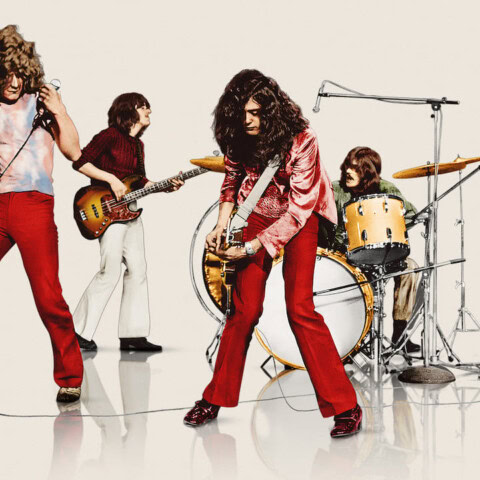It must be a horrid thing sitting in the dark through hundreds of thought-provoking films from all over the world just to pass judgment for the benefit of Witchdoctor readers. We gave REBEKAH DAVIES this most demanding of jobs. Here’s her first instalment.
An acclaimed director of bountiful talent and range, Victor Kossakovsky graduated from the Leningrad Studio of Documentaries in 1978. He has since made a series of films exploring relationships between people and their environment, giving us an illuminating view into life in the Soviet Union.
More recently, Kossakovsky has broadened his scope; he’s now tackling social politics, civil uprising, and how people live and relate to their environment globally. He is an exquisite cinematographer, and exceptional director, who crafts meaningful, emotive films.
 Aquarela – his latest effort as director, cinematographer, writer, and editor – is an ambitious paean to the majesty of water, that most ubiquitous of substances which comprises more than half of the human body and covers over 70 percent of the earth’s surface.
Aquarela – his latest effort as director, cinematographer, writer, and editor – is an ambitious paean to the majesty of water, that most ubiquitous of substances which comprises more than half of the human body and covers over 70 percent of the earth’s surface.
Water, in its various forms, is the star of this film. First, we encounter colossal cliffs of ice, tumbling icebergs the size of small islands, and miles of cracking floes. As the ice begins to melt, we are reminded of the kinetic intensity of immense deep ocean waves and bursting dams; water at its most dramatic and compelling.
 In Jungian analysis, water symbolises the unconscious, our emotions. This film, aided by a lack of dialogue, guides the viewer on a meditative journey, magnificently accompanied by Finnish composer Eicca Toppinen’s churning score. Aquarela reduces human beings to ‘right sized’ in the face of nature’s omnipotence, a lack of veneration for our planet home being a central cause of climate change. Rating – 9/10
In Jungian analysis, water symbolises the unconscious, our emotions. This film, aided by a lack of dialogue, guides the viewer on a meditative journey, magnificently accompanied by Finnish composer Eicca Toppinen’s churning score. Aquarela reduces human beings to ‘right sized’ in the face of nature’s omnipotence, a lack of veneration for our planet home being a central cause of climate change. Rating – 9/10
It’s day five of the New Zealand International Film Festival in Auckland, and as I settle into my seat, a few minutes late and flustered, a horrible realisation dawns on me: I’ve already seen this film, at the AFI Fest in Los Angeles last year. I must also divulge, before we go any further, that I am a long-standing and most ardent admirer of the talented actress, and this film’s star, Juliette Binoche. The director, Oliver Assayas, also happens to be one of my favourite modern auteurs.
 However, something about the combination of these two gifted people leaves me cold. Binoche plays an actress in Non Fiction, as she did in the pair’s first collaboration, 2014’s The Clouds Of Sils Maria. This meta-casting provokes an uncommonly self-conscious performance from Binoche. It isn’t her best work.
However, something about the combination of these two gifted people leaves me cold. Binoche plays an actress in Non Fiction, as she did in the pair’s first collaboration, 2014’s The Clouds Of Sils Maria. This meta-casting provokes an uncommonly self-conscious performance from Binoche. It isn’t her best work.
That said, I admit that I enjoyed this film more the second time around. Non Fiction is essentially a rom-com, French style, embedded with a running commentary on the advent of portable technology, and its effect on literature and publishing. Lively debates between the ensemble cast ensue, emphasised with a lot of glass-waving and furtive cigarette smoking.
 Then there’s the prodigious bed hopping, which everyone shrugs off in a louche manner that further reminds you this movie is European, even with all the talk of blogs, e-books, and cop shows. Non Fiction is entertaining, for sure, if that’s all you desire from your cinematic experience. What it isn’t is a profound statement on digital technology, or modern romantic relationships. Rating – 6/10
Then there’s the prodigious bed hopping, which everyone shrugs off in a louche manner that further reminds you this movie is European, even with all the talk of blogs, e-books, and cop shows. Non Fiction is entertaining, for sure, if that’s all you desire from your cinematic experience. What it isn’t is a profound statement on digital technology, or modern romantic relationships. Rating – 6/10
Opera may not appeal to everyone’s musical sensibilities. However, any true music lover recognises talent and aptitude in performers, regardless of their personal taste. Maria Callas – or La Divina, as she was known — transcended her status as one of the greatest stars opera has ever known, becoming a household name in no small part due to her turbulent private life.
 In this spellbinding documentary, Maria By Callas, filmmaker Tom Volf allows us an unprecedented, offstage audience with the diva through her personal letters and reflections. Through archival interviews we encounter Callas’ public persona: stoic, pragmatic, proud, worldly, and wise. Her letters reveal a different story, that of a wounded woman whose broken marriage and disloyal lover left her disenchanted and unable to work.
In this spellbinding documentary, Maria By Callas, filmmaker Tom Volf allows us an unprecedented, offstage audience with the diva through her personal letters and reflections. Through archival interviews we encounter Callas’ public persona: stoic, pragmatic, proud, worldly, and wise. Her letters reveal a different story, that of a wounded woman whose broken marriage and disloyal lover left her disenchanted and unable to work.
 Maria By Callas contains extraordinary performances; her soul laid bare, the pathos is palpable. Yet Callas had a difficult reputation: during one clip, she rages against the director of the Metropolitan Opera for daring to offer her a stock standard season programme. Her commitment to artistic excellence is evident above all. Would a man have been tarred with the same brush in her position? Would he not have been lauded for his high standards?
Maria By Callas contains extraordinary performances; her soul laid bare, the pathos is palpable. Yet Callas had a difficult reputation: during one clip, she rages against the director of the Metropolitan Opera for daring to offer her a stock standard season programme. Her commitment to artistic excellence is evident above all. Would a man have been tarred with the same brush in her position? Would he not have been lauded for his high standards?
 Callas’ relationship with Greek shipping tycoon Aristotle Onassis provided her with renewed happiness and confidence after the separating from her husband. She made much of their exceptional friendship. However, he cruelly betrayed her by marrying Jacqueline Kennedy, something she learned from a newspaper headline. They eventually reconciled, but irreparable damage had been done to Callas’ voice, career, and health. This is a fine portrait of an impossibly gifted woman whose life was inextricably fused with her art. Rating – 9/10
Callas’ relationship with Greek shipping tycoon Aristotle Onassis provided her with renewed happiness and confidence after the separating from her husband. She made much of their exceptional friendship. However, he cruelly betrayed her by marrying Jacqueline Kennedy, something she learned from a newspaper headline. They eventually reconciled, but irreparable damage had been done to Callas’ voice, career, and health. This is a fine portrait of an impossibly gifted woman whose life was inextricably fused with her art. Rating – 9/10















You left me with a fantastic insight into these films …your words gave them life….you are a fine interpreter of the Arts Thank you Rebekah